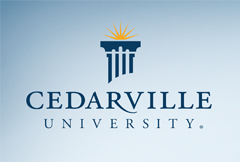Keywords
Ethics, divine command theory
Abstract
Euthyphro, one of the Greek philosopher Plato’s earliest dialogues (about 380 B.C.), presents a dilemma that has troubled philosophers and theologians for centuries. The quandary is provoked by an assertion Euthyphro makes about piety in conversation with Socrates. Euthyphro is planning to prosecute his father for an unintentional murder to avoid being associated with him. He hopes that this will help his standing with the gods. Socrates shows great surprise at Euthyphro’s apparent knowledge of “religion and things pious and impious.” This leads to a discussion concerning the nature of piety, where Euthyphro proposes that whatever is pious and holy is that which is loved by the gods. Socrates then confronts him with the question, “Do the gods love piety because it is pious, or is it pious because they love it?” (Plato, 2003, p 24). At this point Euthyphro is puzzled, and although neither he nor Socrates come to a formal conclusion, Socrates clearly favors the first alternative (Wainwright, 2005). This paper will develop an argument for the position that “something is holy because it is loved by the gods,” however this argument works on the premise that there is one God who is omnipotent, therefore changing the assertion to “what is good and right is only good and right because God commands it.” Two issues concerning divine command theory will be addressed: the problem of abhorrent acts and the depraved state of humanity. These will be used to argue for the impossibility of God commanding anything abhorrent, and the inability of humanity to come to a clear conclusion concerning the relationship between God, right, and wrong.
DOI
10.15385/jce.2008.7.2.4
Recommended Citation
Steffel, Charis
(2008)
"Euthyphro’s Dilemma and Divine Command Ethics,"
CedarEthics: A Journal of Critical Thinking in Bioethics: Vol. 7:
No.
2, Article 4.
DOI: 10.15385/jce.2008.7.2.4
Available at:
https://digitalcommons.cedarville.edu/cedarethics/vol7/iss2/4
Creative Commons License

This work is licensed under a Creative Commons Attribution-Noncommercial-No Derivative Works 3.0 License.
Disclaimer
DigitalCommons@Cedarville provides a publication platform for fully open access journals, which means that all articles are available on the Internet to all users immediately upon publication. However, the opinions and sentiments expressed by the authors of articles published in our journals do not necessarily indicate the endorsement or reflect the views of DigitalCommons@Cedarville, the Centennial Library, or Cedarville University and its employees. The authors are solely responsible for the content of their work. Please address questions to dc@cedarville.edu.
